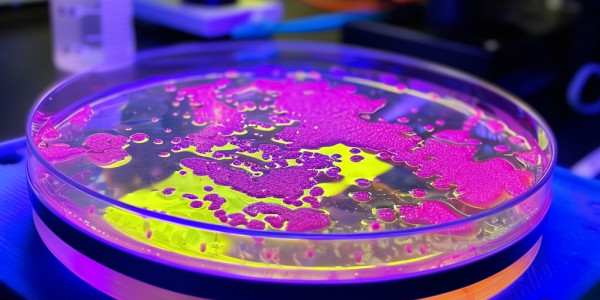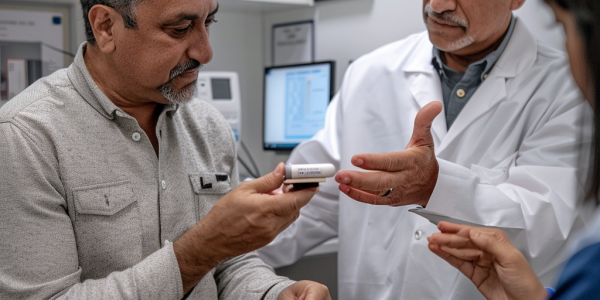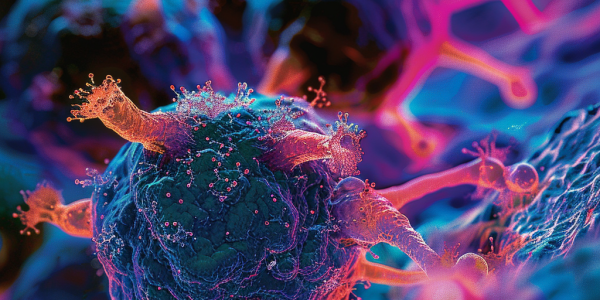Innovative Bacteria-Based Cancer Treatment Shows Promise in Targeted Therapy
Researchers at NUS Medicine have developed a new approach using engineered bacteria to deliver chemotherapy drugs directly to tumor sites, reducing side effects and increasing treatment effectiveness. This groundbreaking discovery offers a less toxic alternative to traditional chemotherapy, with potential applications across different types of cancer therapy.
New Genetic Causes of Rare Bone Cancer Chordoma Uncovered in Children
Researchers at the Center for Personalized Medicine at Children’s Hospital Los Angeles have identified genetic causes for chordoma in children, shedding light on this rare bone cancer. Their groundbreaking study explores both nuclear and mitochondrial DNA, offering comprehensive insights that could lead to more personalized treatment options for pediatric patients.
Promising Progress in Cancer Vaccine Research
Discover the latest advancements in cancer vaccine research, offering promising results in the fight against cancer. Learn how personalized treatment options and innovative technology are revolutionizing cancer care, bringing new hope to patients and healthcare providers worldwide.
Breakthrough in Cancer Research: Microbiome-Based Therapies Show Promise
A recent breakthrough in cancer research by a team from POSTECH and ImmunoBiome focuses on the use of a dietary-derived bacterial strain, IMB001, to enhance anti-tumor responses through ‘nutritional immunity’. The team’s study, published in Nature Immunology, reveals the potential of microbiome-based cancer therapies. Dr. Sin-Hyeog Im has developed a novel strategy for identifying beneficial bacteria suitable for cancer treatment, with plans to start a clinical trial in 2025. IMB001 has shown promising results in preclinical studies across various cancers, slowing down tumor progression and enhancing checkpoint inhibitor therapy efficacy.
Benign Nail Condition Linked to Rare Inherited Disorder Increasing Cancer Risk
Discover how a benign nail condition can be linked to a rare inherited disorder that increases the risk of cancer. Learn about the breakthrough research published in JAMA Dermatology and presented at the Society for Investigative Dermatology Annual Meeting, highlighting the significance of nail evaluations in identifying individuals at risk of developing cancerous tumors.
Man Beats Stage 4 Brain Cancer Twice: A Story of Resilience and Hope
Read about Brian Anderson’s incredible journey of beating stage 4 brain cancer twice, defying the odds and inspiring hope in Winston-Salem, North Carolina. Despite the challenges he faced, Anderson’s resilience and determination serve as a beacon of hope for all facing adversity.
Revolutionizing Cancer Treatment: Nanoparticle Breakthrough Targets Brain Metastases
Researchers at the Sylvester Comprehensive Cancer Center have created a groundbreaking nanoparticle that can penetrate the blood-brain barrier, offering new hope for treating brain metastases. Loaded with drugs targeting cancer cell mitochondria, this innovative approach shows promise in shrinking tumors and addressing primary tumors concurrently. Dr. Shanta Dhar highlights the significance of nanomedicine in cancer therapeutics, emphasizing the potential of targeted therapies to minimize harm to healthy tissues. This development represents a significant advancement in cancer treatment, opening doors for more effective and precise therapies.
New Screening Test Esoguard Offers Hope for Early Detection of Esophageal Cancer
Learn about Esoguard, a new screening test in Long Beach, California, offering hope for early detection of precancerous issues related to chronic heartburn. Find out how this miniature capsule is revolutionizing the screening process for esophageal cancer, a condition that can often go undiagnosed until it’s too late.
Breakthrough in Cancer Treatment Research Achieved with New Immune System Technology
Bar-Ilan University researchers have made a groundbreaking advancement in cancer treatment with new immune system technology, allowing for personalized treatments based on individual immune responses. By monitoring immune system changes around cancer cells, insights into patient reactions to immunotherapy are gained. This research, led by Dr. Shahar Alon, sheds light on the interaction between immune and cancer cells, offering valuable information for tailored treatment decisions and improving patient outcomes.
Epigenetic Mechanisms Found to Play Key Role in Cancer Development
Recent research published in Nature reveals that epigenetic mechanisms, specifically the disruption of Polycomb group proteins, can lead to cancer cell fate without genetic mutations. This challenges the traditional view of tumorigenesis and emphasizes the importance of understanding epigenetic dysregulation in cancer development and therapy.










